South Africa 2019
Spring 2019
Travel dates: March 14-25, 2019
Prof. Anna Jaysane-Darr
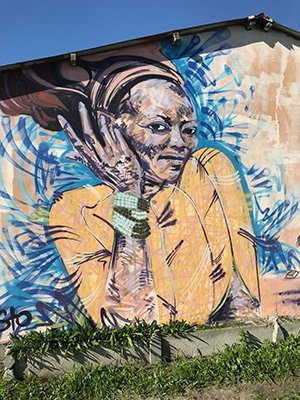 This course examines contemporary South Africa and diverse South African communities
in historical and cultural context. It is built around a travel component that will
include historic sites, museums, local organizations, cooking class, and street art.
This course will provide students an opportunity to learn about and experience the
beautiful and vibrant city of Cape Town, South Africa, 25 years after the fall of
apartheid. Both the campus and travel component will go beyond the exoticizing, tourist
view of Cape Town and Africa more broadly, giving students access to contemporary
Africa in an immersive way.
This course examines contemporary South Africa and diverse South African communities
in historical and cultural context. It is built around a travel component that will
include historic sites, museums, local organizations, cooking class, and street art.
This course will provide students an opportunity to learn about and experience the
beautiful and vibrant city of Cape Town, South Africa, 25 years after the fall of
apartheid. Both the campus and travel component will go beyond the exoticizing, tourist
view of Cape Town and Africa more broadly, giving students access to contemporary
Africa in an immersive way.
Students who participate in this course should be prepared to be highly respectful and responsible during our time in Cape Town.
Course Objectives:
- Assess the roles of colonialism, apartheid, ethnic diversity, and socio-economic inequality in South Africa
- Explicate cultural, activist, aesthetic, and entrepreneurial components of contemporary South African society
- Improve cultural fluency and flexibility
- Position experiential learning in relation to classroom learning
- Use library and experiential research methods to create a final project
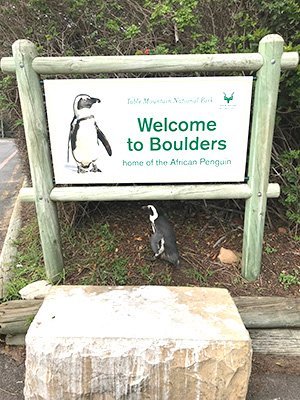 Cost
Cost
$2500 (includes airfare, hostel lodging, transport, admission/guides, and some meals)
Payment schedule:
Enrollment: $500
Oct 1: $500
Nov 1: $500
Dec 1: $500
Dec 15: $500
Spring Break Travel:
Explore Apartheid History and Protest
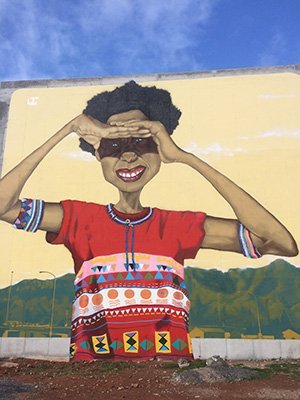 Apartheid used geographic boundaries and radical displacements (as well as violence,
neglect, and economic and educational disenfranchisement) to shore up perceived racial
boundaries between groups in an effort to privilege the white minority and foster
divisions within potential alliances. To understand this history and the large scale
social movements that challenged it, we will take a ferry across to Robben Island,
where Nelson Mandela and other anti-apartheid activists were imprisoned. On Robben
Island, we will receive a tour from a former inmate and visit Madiba’s cell. We will
also visit the Langa Pass Museum, a former “dompas” office, where black South Africans
got the passes that enabled them to move outside of their “home areas.” The District
Six Museum documents the displacement of thousands of people from their homes in the
center of the city when District Six was redesignated as a “white area.” This inspiring
museum was community-built and former residents of District Six work and guide there.
We will also have an opportunity to meet participants from the struggle against apartheid.
Apartheid used geographic boundaries and radical displacements (as well as violence,
neglect, and economic and educational disenfranchisement) to shore up perceived racial
boundaries between groups in an effort to privilege the white minority and foster
divisions within potential alliances. To understand this history and the large scale
social movements that challenged it, we will take a ferry across to Robben Island,
where Nelson Mandela and other anti-apartheid activists were imprisoned. On Robben
Island, we will receive a tour from a former inmate and visit Madiba’s cell. We will
also visit the Langa Pass Museum, a former “dompas” office, where black South Africans
got the passes that enabled them to move outside of their “home areas.” The District
Six Museum documents the displacement of thousands of people from their homes in the
center of the city when District Six was redesignated as a “white area.” This inspiring
museum was community-built and former residents of District Six work and guide there.
We will also have an opportunity to meet participants from the struggle against apartheid.
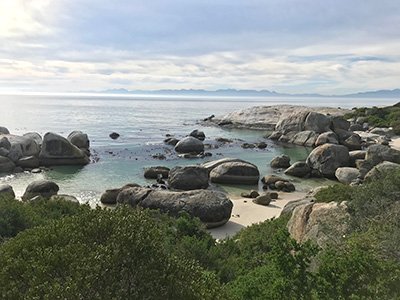 Understand Current Inequalities in South Africa
Understand Current Inequalities in South Africa
The legacies of the apartheid state continue to shape urban development, educational access and achievement, and economic opportunities in South Africa. We will learn more about these impacts through the organizations that work on remedying them. This might include health organizations/clinics, children’s programs, food access initiatives, programs for the elderly, and more.
Experience the Natural Environment of the Coast
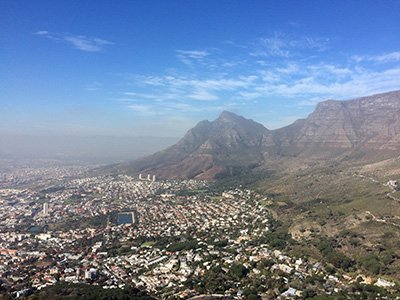 In addition to history, resilience, and creativity, Cape Town is striking for its
natural landscape and coastal fauna. We will take the cableway up to the top of Table
Mountain where we can view the city and region from above, examine the unique flora,
and say hello to the dassies (small rodent-like mammals most closely related to elephants)
that inhabit it. We will drive down the coast to meet the penguins who live on Boulders
Beach in Simon’s Town and walk out to the tip of the Cape of Good Hope (keeping an
eye out for baboons!).
In addition to history, resilience, and creativity, Cape Town is striking for its
natural landscape and coastal fauna. We will take the cableway up to the top of Table
Mountain where we can view the city and region from above, examine the unique flora,
and say hello to the dassies (small rodent-like mammals most closely related to elephants)
that inhabit it. We will drive down the coast to meet the penguins who live on Boulders
Beach in Simon’s Town and walk out to the tip of the Cape of Good Hope (keeping an
eye out for baboons!).
Delve into the Creativity and Innovation of Cape Town
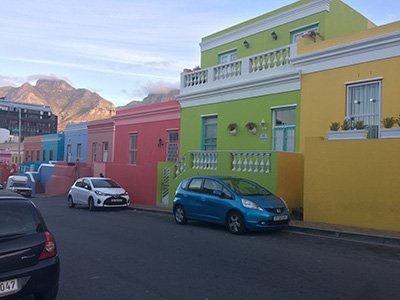 Cape Town is now an arts hub in South Africa and across the continent. To learn more
about this, we will visit the Gugu Sthebe Culture and Art Center in Langa, and look
at local projects connecting artists with the community. We will also check out the
creative neighborhood of Woodstock, tour the numerous examples of street art, and
check out the Saturday Neighbourgoods Market. But we will also think about the impact
of gentrification on this neighborhood and its inhabitants. In the Bo-Kaap neighborhood,
we will learn more about Cape Malay culture and cuisine through a tour, cooking class,
and visiting a famous local spice shop. This neighborhood experience will also offer
us an opportunity to think about the history of slavery in Cape Town. In Khayelitsha,
we will take an African beading class from a local woman in her home.
Cape Town is now an arts hub in South Africa and across the continent. To learn more
about this, we will visit the Gugu Sthebe Culture and Art Center in Langa, and look
at local projects connecting artists with the community. We will also check out the
creative neighborhood of Woodstock, tour the numerous examples of street art, and
check out the Saturday Neighbourgoods Market. But we will also think about the impact
of gentrification on this neighborhood and its inhabitants. In the Bo-Kaap neighborhood,
we will learn more about Cape Malay culture and cuisine through a tour, cooking class,
and visiting a famous local spice shop. This neighborhood experience will also offer
us an opportunity to think about the history of slavery in Cape Town. In Khayelitsha,
we will take an African beading class from a local woman in her home.
